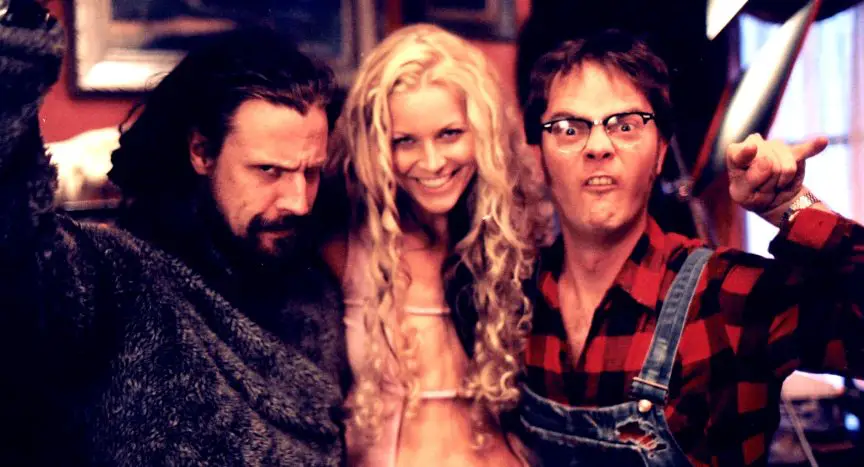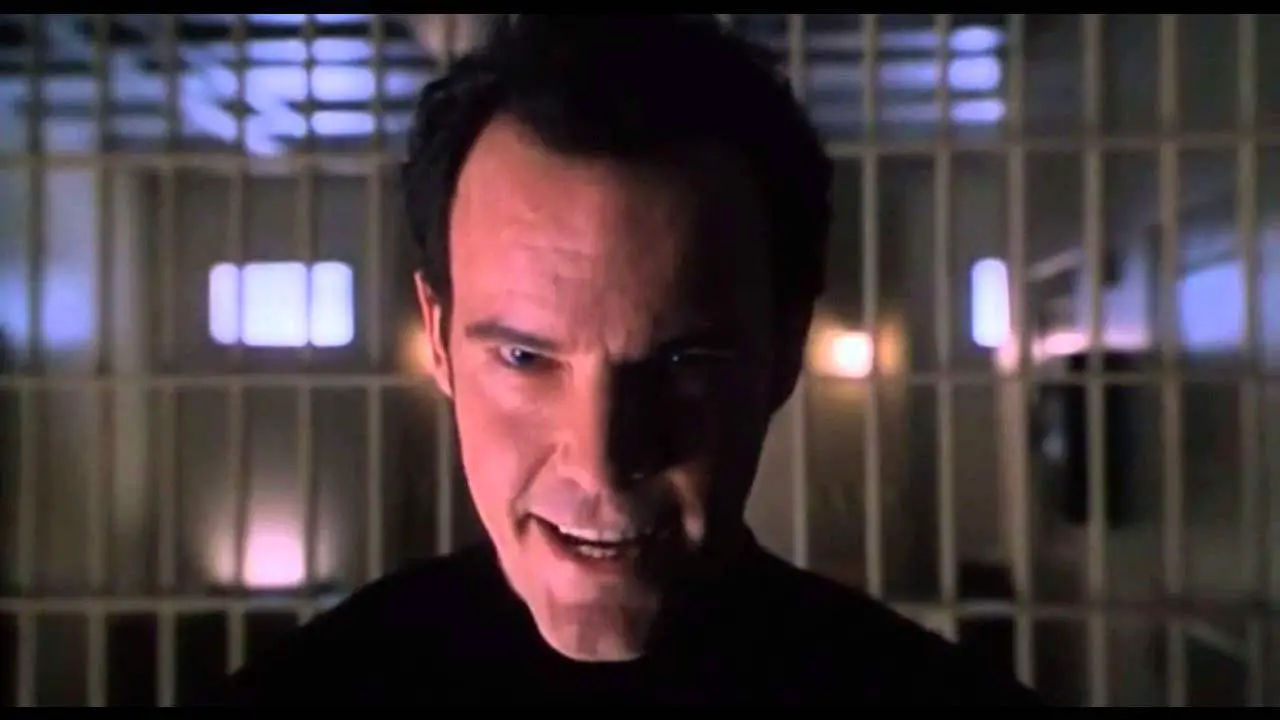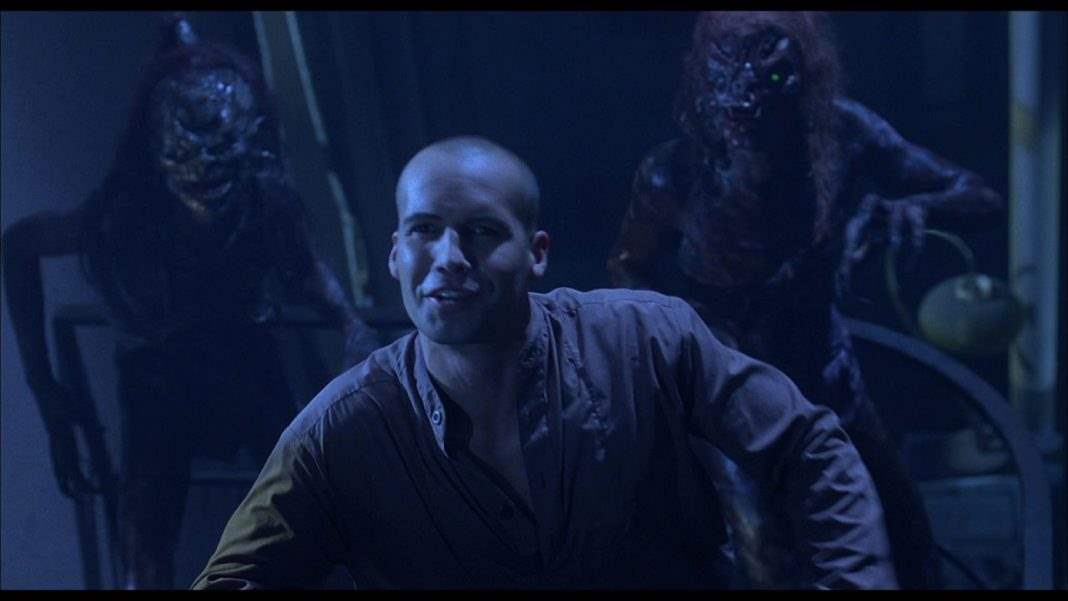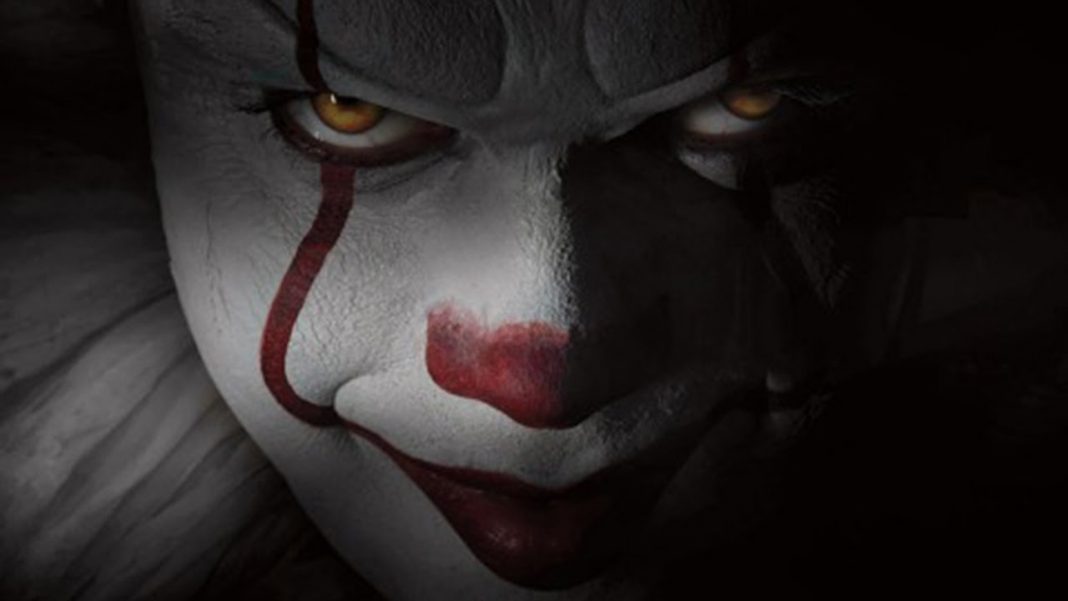House of 1000 Corpses and The Lords of Salem were released in the same month ten years apart. They couldn’t be more different in theme, execution, look, and tone, with Corpses imbued with a brash zaniness that suits Zombie’s throw-everything-at-the-screen-and-see-what-sticks approach while Lords takes its time unraveling a deep, all-encompassing, town-wide conspiracy that threatens to destroy the lives of every woman in Salem. Both are undeniably stylish, though the writer-director’s taste has noticeably evolved in the decade between them, as Zombie worked hard to hone his lovably ADD energy to better communicate a unique vision that, while it’s struggled to find much love on a mainstream level, is no less worthy of praise.
There are hints of the kind of filmmaker he’d later become in Corpses. Although even the movie’s biggest fans remember it mostly for the terrific performances from horror icons Bill Moseley, Sid Haig, and Karen Black–who walked so Jennifer Coolidge could run–and the grindhouse-style vignettes that Zombie infamously shot in his basement due to a lack of funds and/or studio support (at this stage, the myths surrounding the shoot are arguably more interesting than the truth), his debut feature is memorable in its own right too. That opening shot of Captain Spaulding’s sign and slow zoom down to the ground is legitimately cool, the ominous score creating a real sense of foreboding about what’s to come (unsurprisingly, Zombie has a great handle on how music should figure into his movies–the titular song is also one of his best).
Every second word is a swear but it’s worth noting that Zombie has a real gift for droll, rat-a-tat dialogue, the kind that Tarantino has been praised for throughout his entire career–the only difference is that Zombie is operating in a much trashier vein. He isn’t necessarily trying to make any grand statements, just to shock and delight us with a properly scary, down-home horror movie. Corpses has that gorgeously grainy seventies look, but Zombie demonstrates a deeper understanding of why movies like The Texas Chain Saw Massacre, clearly a massive influence, look the way they do. The scenes in Spaulding’s ride are lit so beautifully, predominantly with evocative reds and blues, and watching the movie back-to-back with Lords, it’s obvious how much Zombie was thinking about the final product while making it. He’s clearly grown as a director in the interim, but Corpses isn’t less considered just because it’s scrappier and has a significantly smaller scale.
Did You Know? Wicked Horror TV Has Classic and Independent Horror Films Available to Stream for Free!

True, Zombie’s debut is unfocused at times. However, the premise is genuinely terrifying, and he luxuriates in each gruesome moment without it ever feeling exploitative in the same way that torture porn (then in its heyday) does. There’s a wit and a humor to the violence, for Corpses is essentially a grindhouse movie and a goofy comedy in one, perhaps best exemplified by the Agatha Crispies cereal and the fact the villains’ names are all Marx Brothers references. Zombie sprinkles tons of fun details in, emphasizing that this isn’t some throwaway vanity project for him. His characters are all three-dimensional creations with their own desires and motivations, and each actor gives it their all from a pre-Office Rainn Wilson to Sheri Moon Zombie as the unhinged Baby, a woman the male interlopers are so horny for that they immediately dismiss her as a threat. Moon Zombie is consistently criticized for being a bad actor who wouldn’t have a shot in hell in Hollywood if it wasn’t for her husband, but she does a significantly better job than Eli Roth’s ex-wife, Lorenza Izzo, or Kevin Smith’s current spouse, Jennifer Schwalbach-Smith.
Especially when comparing Moon Zombie’s performances in these two wildly different movies, it’s obvious she can really act and isn’t afraid to take risks but getting to play Baby first–a character that demands a certain amount of overacting to truly connect–was a major boon. Elsewhere, Moseley is weirdly sexy as the grungy Otis (even more so in The Devil’s Rejects) and Dr. Satan (Walter Phelan) is a bloodcurdling creation, especially when he does surgery on a still-alive Jerry (Chris Hardwick). His underground lair is sick too, an impressive set with a crazy amount of detail that feels like an inescapable maze even before anyone gets lost in it. Although Corpses wears its many influences on its blood-splattered sleeve, Zombie makes certain choices that mark it out as not just another cynically derivative pretender to the throne. It’s rare for the action in a horror movie to bleed into daylight, but Zombie takes full advantage of it so he can show off just how twisted his creations are. The shot of final girl Denise (Erin Daniels) climbing out of the ground is brilliant, too.
Having said all of that, Zombie ends things on a decidedly offbeat, borderline silly note with his “The End?” title card. Evidently, judging by the arch performances–“Y’all think you’re too good for the simple pleasures of Halloween?” is a bizarrely-phrased question posed with complete sincerity by Black’s matriarch–and colorful palette, Corpses isn’t meant to be taken too seriously. Zombie’s winning combination of zany energy and stomach-churning shocks makes for an entertaining, if uneven debut, but regardless of how you feel about it, there’s no denying Corpses is an attention-grabbing calling card for an exciting new voice in genre cinema. The fact Zombie followed it up with The Lords of Salem, a moody, introspective, and equally genre-defying horror story, just ten years later speaks to how wrong those who wrote him off after that first venture on the ghost train were. Roth was, and in certain quarters frequently still is, considered more of a maestro because he was instrumental in creating a new sub-genre. But Roth could never have made Lords.
In fact, nobody but Zombie could have pulled it off. Lords is a fascinating change of pace from the hyper-stylized gonzo energy of his previous films and indeed this was a deliberate choice for the filmmaker, who told Artisan News (via JoBlo): “Cinematically, I wanted to do something different, ’cause I’ve done all the other movies–and I like that style–sort of handheld and rough and kind of in your face, but I wanted to do something that was much more (…) controlled and composed.” In fact, Zombie went on to winningly describe Lords as: “If Ken Russell directed The Shining.” It’s an apt comparison for a movie that is immediately more considered and texturally richer than virtually everything that came before it. Zombie clearly took his time with this one, carefully layering the scares, tension, and lighter moments to create the kind of slow-burn horror movie that burrows underneath your skin without you even realizing. Much like Corpses, though, there are plenty of fascinating touches–the realistically annoying radio show with way too much shit on the soundboard, Heidi’s impressive fake tattoos–that let us know this is still un film de Rob Zombie.

Lords is also arguably his most feminist flick yet. Aside from giving his wife the meatiest role of her career thus far–Moon Zombie rises to the occasion and then some, imbuing recovering drug addict Heidi with the kind of sad resilience that anybody who’s struggled with their sobriety will immediately recognize without ever using it as a plot point–Zombie also showcases the talents of living legend Patricia Quinn, perfectly cast as a drunk old kook, Meg Foster, and Dee Wallace. It’s wonderful to see older actresses being given complex roles like this (if only Barbara Crampton, who briefly cameos, were slightly older she could’ve had a leading role too). Crucially, Zombie is firmly on the side of the witches rather than their oppressors, as evidenced by the film’s creepy opening moments and frequent flashbacks to head witch Margaret’s torture and murder at their hands. Nevertheless, the shots of her lurking in the background of certain scenes are hair-raising, especially since Zombie never places Margaret where you’re expecting him to.
The imagery is incredibly evocative and highly original. It makes complete sense that Heidi’s stripy-jumper-and-corpse-paint look was chosen for the movie’s poster. The styling is terrific throughout–knee-high socks never looked cooler and Killstar released their own take on Heidi’s jumper soon after the movie’s release. Plus, it’s been repeatedly copied and replicated ever since. Likewise, the weird little tentacle baby standing by Heidi’s bed is enough to send chills down our spines without showing any explicit sexual violence–something Zombie has mostly stayed away from, to his immense credit, with the exception of the Halloween DC. The Lords’ music is properly scary too, with Zombie once again proving that he’s got some serious chops when it comes to selecting and incorporating compositions for his movies. Corpses might be rougher around the edges than Lords, but they share a commitment to putting everything that matters onscreen, and the characters feel lived-in, their plight powerfully redolent.
Moon Zombie is responsible in large part for how well both of these movies work, particularly this long after they were both initially released, when the world has changed so much, and we have less patience for female characters that exist purely to serve the men around them. The idea of whether Baby is a feminist creation would need a whole other essay to dissect but there’s no denying Moon Zombie’s performance is distinctive, idiosyncratic, and very personal to her. Watching Corpses and Lords back-to-back only solidifies what Zombie probably saw all along: His wife is one hell of a performer. But it also showcases how much he’s grown as a filmmaker and a storyteller, despite or perhaps because of starting from a point that was in a class by itself and indeed still is. These days, horror directors’ debuts have to be considered high art, like The Witch, which shares certain DNA with Lords, or Hereditary. And yet, it’s tough to imagine Robert Eggers or Ari Aster pulling off something like Corpses without it seeming below them or even like pandering.
Zombie has survived this long, and continues to surprise us, because he’s always stayed true to his own bizarre intuition. He’s a diehard horror fan through and through, the kind who adores every aspect of the genre and wants to showcase that respect above all else. He showcases violence without numbing us to its effects and is always having a great time. Love him or hate him, there’s simply no avoiding the fact that you’ll always know when you’re watching a Rob Zombie movie. And if these two wildly different projects are any indication, he’s got plenty more horrible delights to show us.






